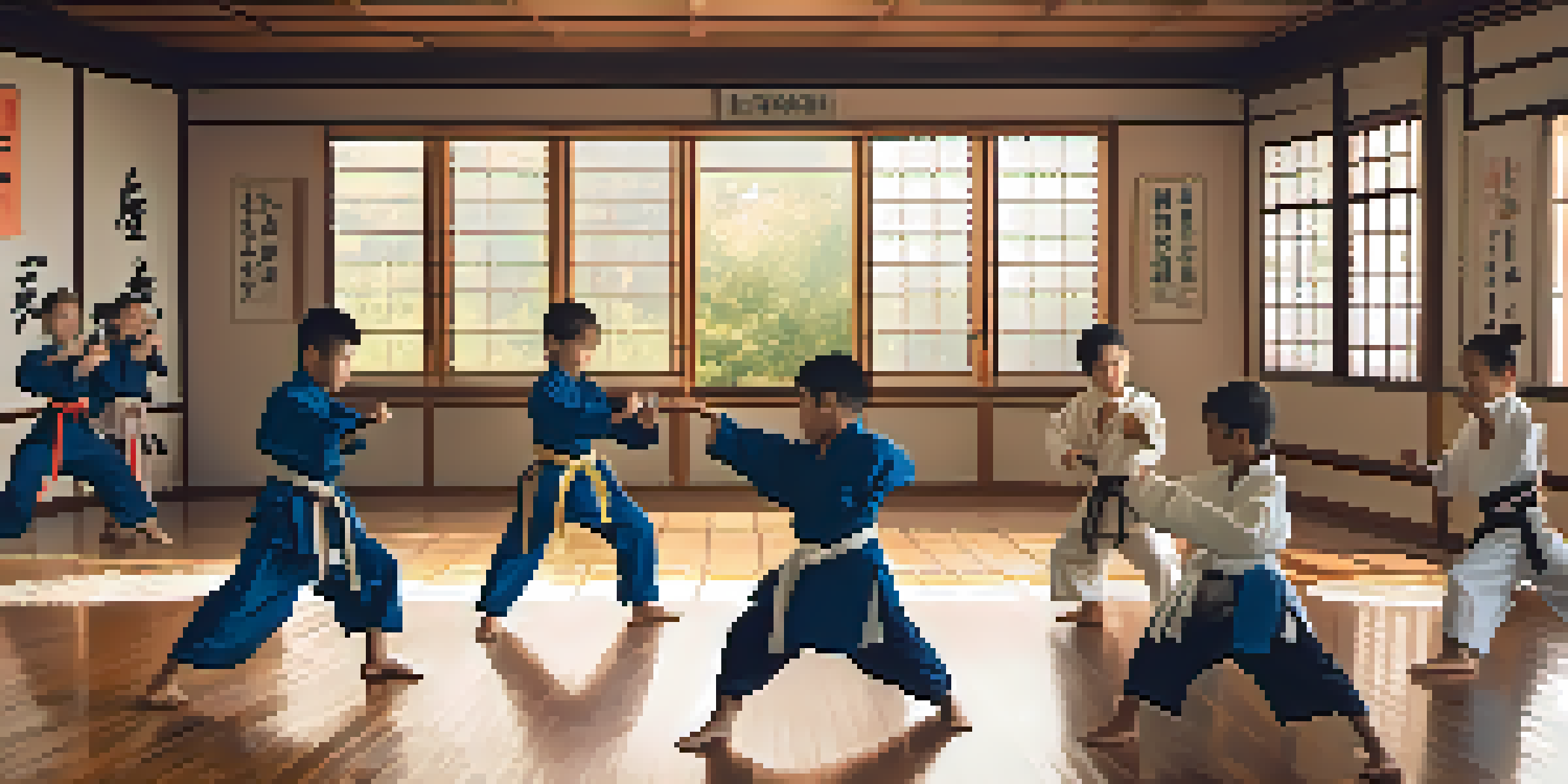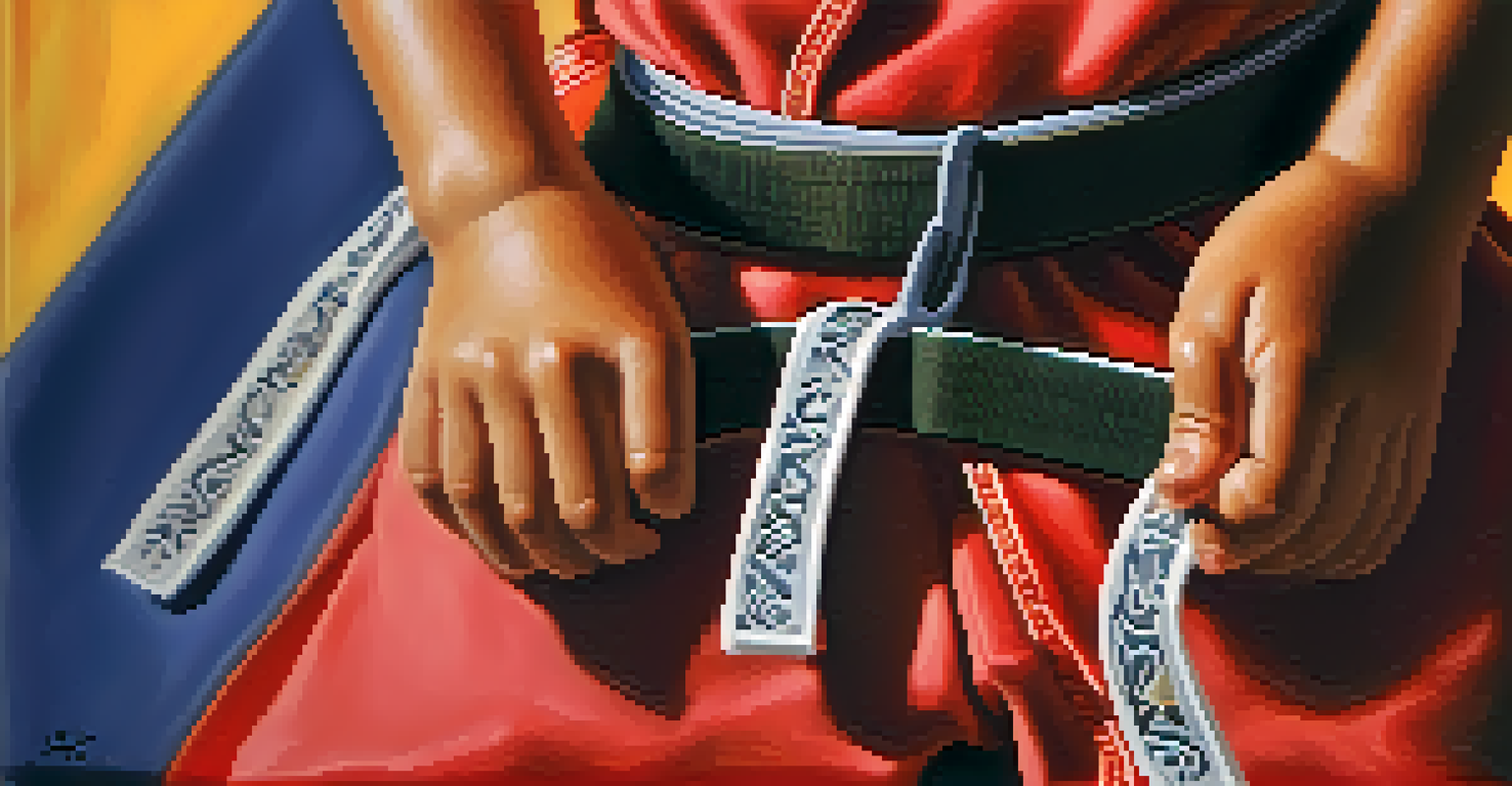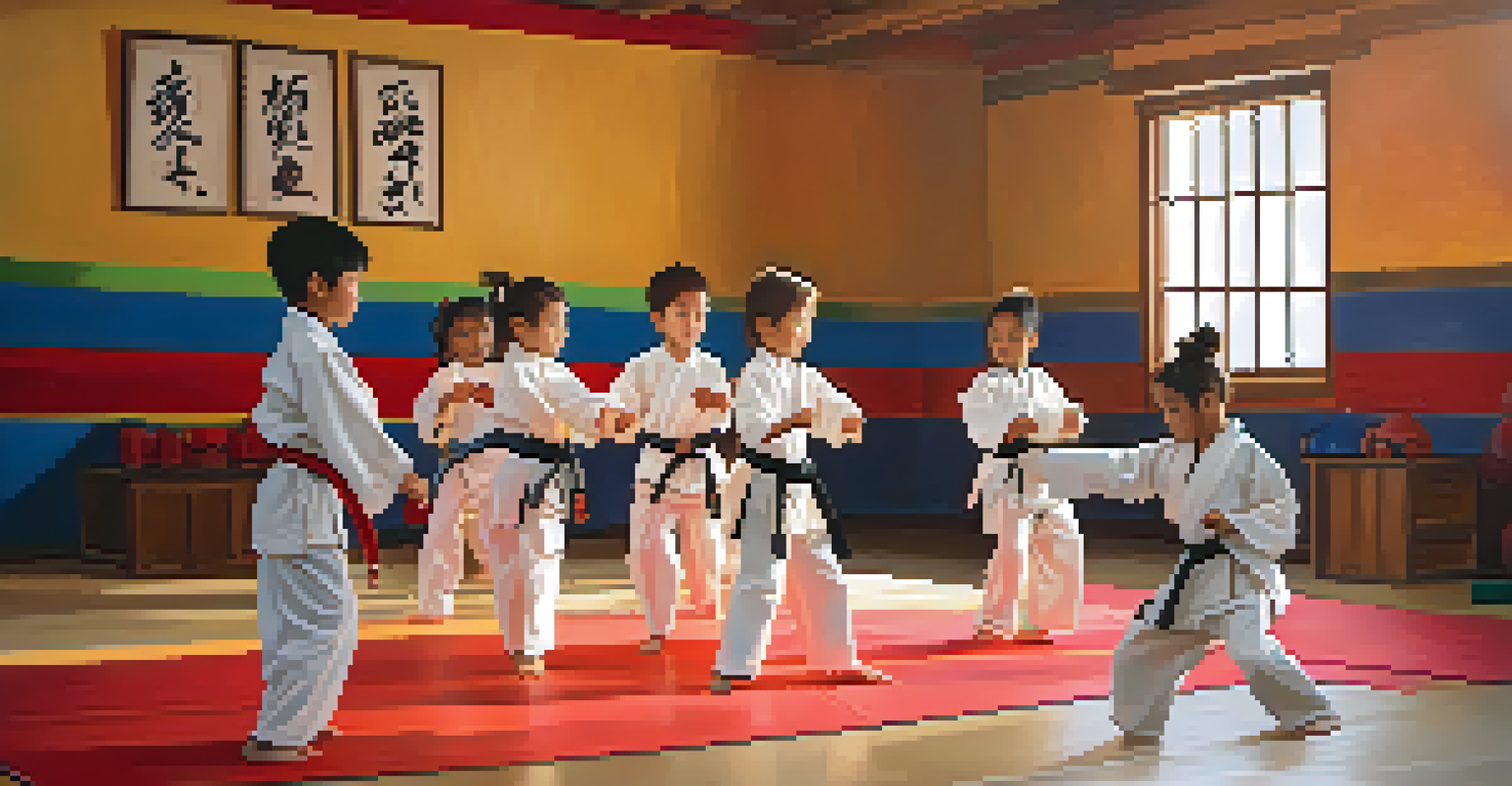Martial Arts as a Tool for Developing Coordination in Kids

Understanding Coordination in Children
Coordination is the ability to use different parts of the body together smoothly and efficiently. For kids, it’s essential for activities like sports, dancing, and even everyday tasks. Good coordination helps children move with confidence, which can improve their self-esteem.
The body achieves what the mind believes.
As children grow, they develop coordination through play and physical activities. However, some kids might struggle with coordination due to various factors like lack of practice or physical challenges. This is where martial arts can play a crucial role in enhancing their coordination skills.
Martial arts involve a range of movements that require the brain and body to work together. By practicing these techniques, kids can develop better timing, balance, and spatial awareness, all of which are key components of coordination.
How Martial Arts Classes Foster Coordination
Martial arts classes are structured to include various drills and exercises that promote coordination. For example, techniques such as kicks, punches, and stances require precise movements that help children learn how to coordinate their limbs effectively. Over time, these repetitive motions build muscle memory.

In addition to physical movements, martial arts often incorporate rhythm and timing challenges. For instance, practicing kata (a sequence of movements) requires students to focus on their body positioning and timing, further enhancing their coordination skills. This practice can be both fun and engaging for kids.
Martial Arts Boosts Coordination
Practicing martial arts enhances children's coordination through various movements and drills that develop timing, balance, and spatial awareness.
Moreover, martial arts instructors often place emphasis on teamwork and partner exercises. Such interactions not only develop coordination but also teach kids to work together and communicate effectively, fostering social skills along the way.
Benefits of Improved Coordination in Daily Life
As children's coordination improves through martial arts, they often experience benefits in other areas of their lives. For example, better coordination can lead to improved performance in sports and physical activities, making them more confident in their abilities. This newfound confidence can encourage them to participate in more activities.
Success is the sum of small efforts, repeated day in and day out.
Additionally, enhanced coordination can help kids with academic tasks as well. Activities like writing or playing a musical instrument require fine motor skills, which can be strengthened through the practice of martial arts. This holistic development is crucial during their formative years.
Moreover, these benefits extend to their social interactions. Improved coordination can help kids feel more at ease in group settings, whether playing games at recess or participating in team sports, as they become more aware of their movements and those of others around them.
Building Discipline and Focus Through Martial Arts
Martial arts training is not just about physical skill; it also instills discipline and focus in children. These traits are essential for mastering coordination. When kids learn to follow instructions and practice diligently, they develop the ability to concentrate on their movements.
This discipline translates into other aspects of their lives as well. For instance, children who practice martial arts often find it easier to focus on schoolwork and homework. The ability to concentrate can lead to better grades and a more positive attitude towards learning.
Improved Confidence and Skills
As kids gain coordination from martial arts, they often see benefits in sports performance and daily tasks, leading to increased self-esteem.
Moreover, as kids practice martial arts, they learn the importance of setting goals and achieving them. Whether it’s mastering a new technique or earning a belt, these experiences foster a sense of accomplishment and motivation, encouraging them to keep improving their coordination.
Social Interaction and Team Building in Martial Arts
Martial arts classes provide a unique environment for kids to interact socially. Practicing with peers helps them develop teamwork skills, as many techniques require working together. This social aspect of martial arts enhances their overall coordination while fostering friendships.
In addition, kids learn to respect their instructors and fellow students, promoting a sense of community. This environment encourages them to support one another as they work on their coordination skills, creating a positive atmosphere for growth.
Through sparring and partner drills, children also learn how to read body language and anticipate movements, which are crucial components of coordination. These skills can translate into better relationships outside the dojo, as they become more attuned to others' movements and emotions.
Encouraging Lifelong Fitness Habits
One of the significant benefits of martial arts is that it promotes a love for physical activity. As children engage in martial arts, they often discover the joy of movement and the importance of staying active. This foundation can lead to a lifelong commitment to fitness.
The variety of movements in martial arts keeps kids engaged and excited about physical activity. They learn that exercise can be fun and rewarding, which can reduce the likelihood of sedentary habits as they grow older. This enthusiasm for movement is crucial in today’s digital age.
Discipline and Social Skills Growth
Martial arts training fosters discipline and teamwork, helping children concentrate better and build strong social interactions with peers.
Moreover, as kids develop their coordination through martial arts, they become more capable of trying different sports and activities. This versatility not only keeps them physically active but also encourages them to explore new interests, further enhancing their overall coordination and fitness.
Choosing the Right Martial Arts Program for Kids
When looking for a martial arts program for your child, it’s essential to consider their interests and personality. Some kids may thrive in a structured environment, while others might prefer a more relaxed approach. Researching various styles, such as Taekwondo, Karate, or Judo, can help you find the best fit.
It’s also important to visit potential schools and observe classes. Look for programs that emphasize not only physical skill but also personal development, discipline, and respect. A nurturing environment will help your child feel comfortable and motivated to improve their coordination.

Finally, consider the instructors’ qualifications and their ability to connect with kids. A passionate and skilled instructor can make a significant difference in your child’s experience, fostering a love for martial arts that will last for years to come.